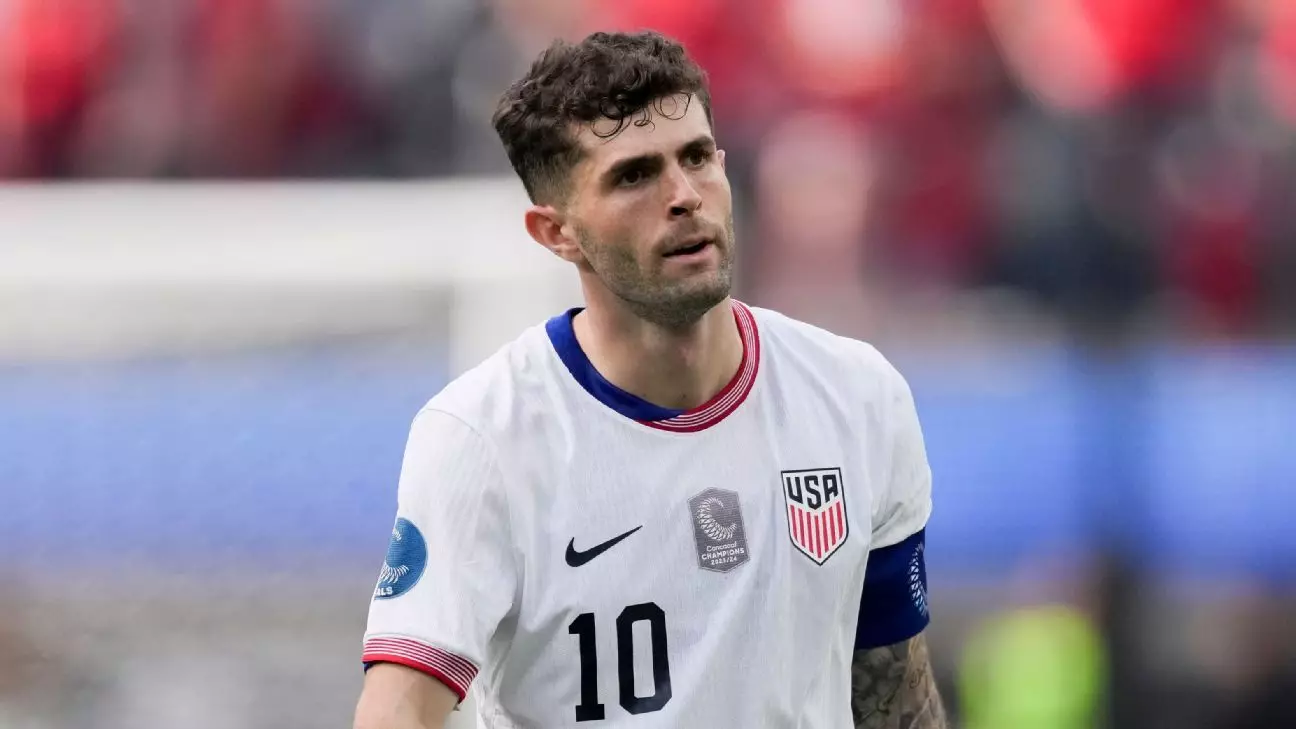In the ever-evolving world of soccer, the expectation for players to don their national jerseys and represent their countries comes with both honor and pressure. Recent events surrounding U.S. soccer star Christian Pulisic and his decision to skip the Gold Cup for personal rest have ignited a firestorm of opinions, particularly from revered figures like Landon Donovan. Donovan’s strong remarks, wherein he called into question the spirit of commitment exhibited by current players, not only reflect his passion for the sport but also highlight a critical dialogue about player welfare and international obligations.
The Underlying Pressure of National Representation
What does it truly mean to wear your country’s colors? A question that resonates deeply with every athlete who has had the fortune of competition at the highest levels, this inquiry was eloquently posited by Donovan on a recent FOX Sports broadcast. As he watched Cristiano Ronaldo, a player known for his relentless pursuit of excellence despite age and injury, Donovan’s frustration seemed directed at those who opt for rest over nationhood. This line of thought deserves a thorough examination. While Donovan’s sentiments are undeniably steeped in a lifelong commitment to U.S. soccer, we must also consider the invaluable role of mental and physical health in sports performance.
It is easy to draw comparisons between players of different eras. The demands on athletes today—accelerated by technology, media scrutiny, and an unrelenting schedule—often lead to mental and physical fatigue, something that Donovan himself experienced. His sabbatical years ago demonstrated the occasional necessity for athletes to step back. The irony is palpable: while he advocates for playing through fatigue, he once himself recognized the importance of recovery.
Mark Pulisic’s Response: A Parent’s Perspective
Mark Pulisic’s rebuttal to Donovan’s comments brings an essential viewpoint into the conversation. By leveraging ChatGPT to highlight Donovan’s own struggles with mental exhaustion, Mark reminded the public that even the most esteemed players grapple with these challenges. This response showcases the complex dynamic encompassing parental protection combined with the reality facing modern athletes. Pulisic’s desire to take a moment for self-care should not be interpreted as a lack of commitment or love for his country. Instead, it is a conscious decision grounded in the recognition of risk management in an athlete’s career.
Moreover, the screenshot that Mark posted on social media, showcasing the chatbot’s insights, hints at the pressing relevance of informed discussions around mental health in sports today. In an environment where social media extends both validation and critique, it’s noteworthy how today’s athletes navigate public sentiment.
The Narrative of Team Cohesion
Arguments from former U.S. great Alexi Lalas also merit examination. His assertion that the national team requires cohesion leading up to the World Cup emphasizes the urgency for players to convene and build rapport. However, this perspective potentially overlooks the unique challenges each player faces as they juggle club commitments, personal lives, and national representation.
Perhaps what Lalas missing is that cohesion can also manifest through understanding and empathy towards individual players’ needs. Creating an environment where players feel supported in their choices enables the team to cultivate resilience and, in the long run, fosters a healthier approach to performance expectations. A team composed of individuals who feel valued for their well-being—physically, mentally, and emotionally—can indeed outperform one driven solely by expectations.
The conversation surrounding Pulisic’s decision serves as a catalyst for broader discussions regarding the balance of personal well-being and professional duty. It calls into question whether we, as spectators and fans, sometimes emphasize the former at the expense of the latter. The traditions that surround international soccer must evolve alongside the athletes themselves, who experience pressures uniquely different from those of past generations. What we need is an open dialogue—one that celebrates commitment while also understanding the necessity of rest and mental health in a sport as grueling as soccer. The future of the game demands not just skill, but the humanity behind the jerseys worn proudly by those who play.

